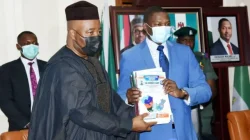Japan and U.S. Intensify Talks to Avoid Escalating Trade Dispute
As the clock ticks down to a critical deadline, Japanese and American officials are engaged in high-stakes discussions aimed at averting a potential trade war that could disrupt economic relations between two of the world’s largest economies. With just days remaining before a 24% reciprocal tariff on Japanese imports is set to expire on July 9, Tokyo has ramped up its diplomatic efforts to secure a favorable outcome.
Ryosei Akazawa, Japan’s top tariff negotiator, held extensive phone conversations with U.S. Commerce Secretary Howard Lutnick earlier this week, underscoring the urgency of the situation. The bilateral talks reflect Japan’s strategic move to address mounting trade tensions with Washington before the current tariff framework expires, potentially triggering a sharp increase in duties.
The Japanese government has made it clear that it remains committed to ongoing dialogue with the United States. Officials in Tokyo are particularly concerned about recent indications from the White House that tariffs on Japanese goods could rise significantly—possibly reaching as high as 30% or even 35%, according to statements from U.S. President Donald Trump. Despite these ominous projections, the administration has offered limited official clarification, referring primarily to the president’s public comments.
President Trump has recently intensified his criticism of Japan, accusing the country of maintaining unfair trade practices in the automotive sector while simultaneously avoiding imports of American rice. These allegations have been met with skepticism, given Japan’s increased purchases of U.S. rice amid rising domestic prices—a development that directly contradicts Trump’s assertions. Whether this discrepancy will serve to ease tensions remains an open question.
Negotiations between the two countries have continued for nearly three months without yielding a comprehensive agreement that would protect Japan’s vital industries from impending tariffs. Particularly vulnerable is the automotive sector, which faces a looming 25% industry-specific tariff if no resolution is reached. Prime Minister Shigeru Ishiba has reiterated his government’s determination to defend Japan’s economic interests, despite the challenging circumstances.
Adding to the uncertainty, President Trump revealed on Friday that he had signed letters regarding tariff measures with twelve different countries, though he declined to name them specifically. His subsequent comments expressing doubts about reaching a deal with Japan further complicated the negotiation landscape, injecting additional pressure into Tokyo’s diplomatic initiatives.
Japan’s status as the largest foreign investor in the United States has become a focal point in these discussions. Government officials in Tokyo are counting on this significant economic relationship to influence decision-making in Washington. As both sides approach the July 9 deadline, the stakes couldn’t be higher, with potential consequences extending beyond immediate tariff concerns to affect broader economic ties and industrial sectors crucial to both nations.
The coming days will test the resilience of U.S.-Japan relations as policymakers work against time to find common ground. A failure to reach an agreement could trigger a chain reaction impacting global supply chains, market confidence, and long-standing economic partnerships between East and West.





